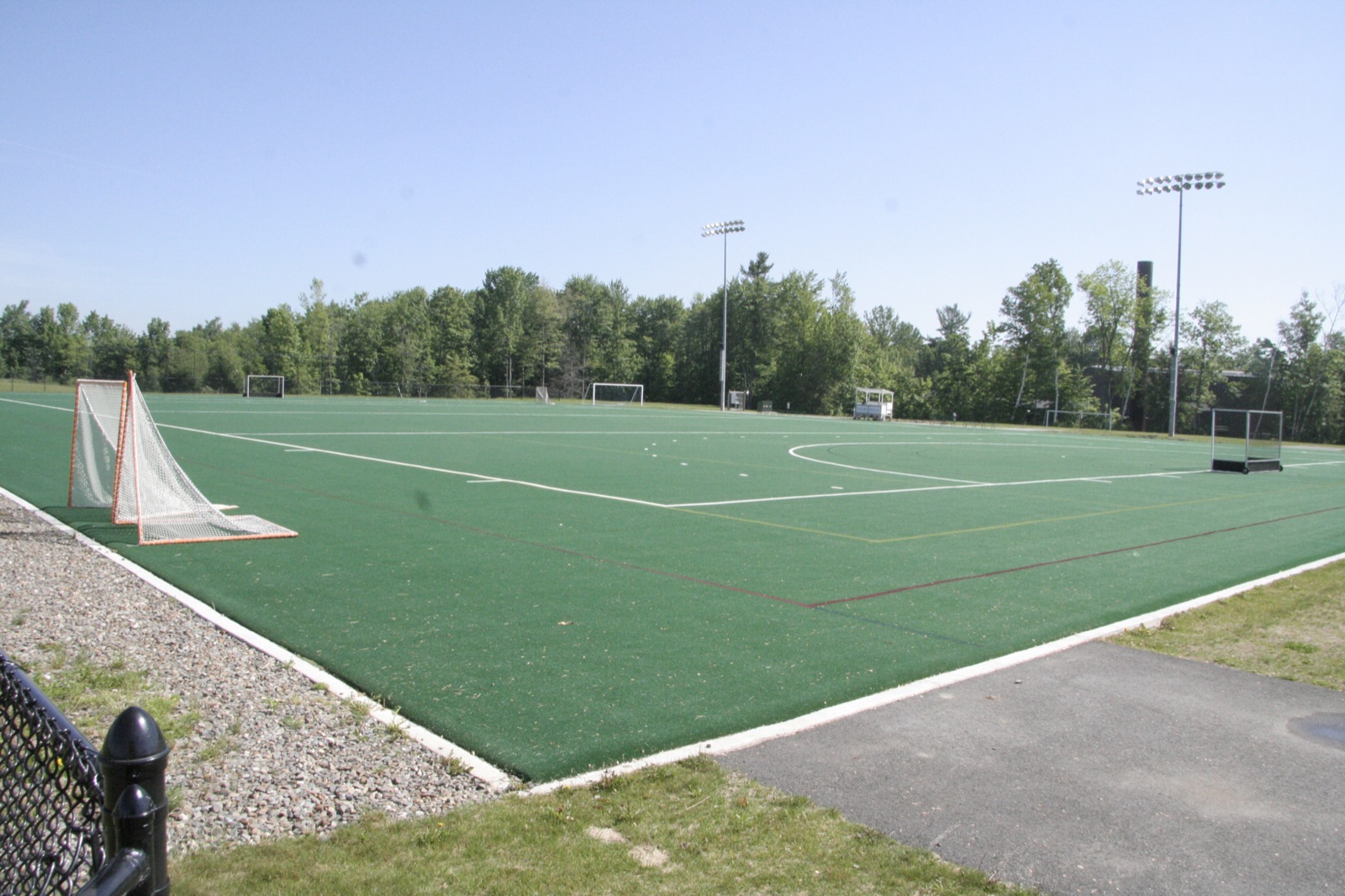Zero Waste Amherst Encourages The Town To Not Install Synthetic Turf On High School Athletic Fields

Photo: Wikimedia Commons. (CC BY-SA 2.0)
Zero Waste Amherst thanks Toni Cunningham for cautioning the town regarding the use of synthetic turf in any of our school projects.
In particular, Zero Waste Amherst urges the Town to not support the use of town funds for the purchase of synthetic turf at the High School. (Option 3 – Relocate the Track to a North/ South orientation with a Synthetic Turf playing field interior).
The environmental and health concerns over the use of synthetic turf far outweigh any advantages.
1. Because synthetic turf’s toxicity, it is not recyclable. It is “forever”.
At present, it appears that there is no acceptable way to recycle or to reuse synthetic turf that protects the public from PFAS, including from PFAS leakage into our water.
A recent article in the Intercept states that there is no place in the US that currently recycles synthetic turf and that any items made from recycled turf would end up containing PFAS and other undesirable components of the turf.
The article refers to Franklin, Massachusetts, where a pile of used turf was discovered near Franklin wetlands.
“Franklin, Massachusetts, is hardly the only place struggling with the problem of how to discard turf once it’s no longer in use. Turf eventually wears out — typically within about a decade of installation — and when it does, it needs to be replaced. Between 1,200 and 1,500 new turf fields are being installed across the country each year, according to estimates from the Synthetic Turf Council.
The infill and turf for a single field can weigh 495,000 pounds, according to an estimate in recycling guidelines found on the Synthetic Turf Council’s website. That document explains that “as with any recycle, reuse, and recovery effort, the diversity of component materials may represent economic or technical challenges.” It also notes that “the industry continues to research and identify the most economical and responsible way to process all turf components such as turf plastics, infill(s) and underlayment pads that need to be removed, recycled and reused.”
ZWA recommends using natural turf as the preferred zero waste solution, along with the use of environmentally sound methods of grounds maintenance.
2. Synthetic turf is a health hazard.
The presence of PFAS “forever chemicals” in synthetic turf is a health hazard to our children. We strongly endorse Toni’s arguments regarding the toxic effects of PFAS and other carcinogens in synthetic turf and urge you to read her linked references.
3. Amherst could join the towns leading on this choice.
As Toni pointed out, many towns/cities are moving to ban the installation of synthetic turf, including Boston, Sharon, Wayland, Concord, Malden, and Martha’s Vineyard.
This is another area where former thinking/past practices should be set aside in favor of the new normal – in light of the new data we have about health impacts and the related inability to safely recycle synthetic turf.
Again, ZWA strongly urges the Town to not support the use of town funds for the purchase of synthetic turf.
Darcy DuMont for the Zero Waste Amherst Steering Committee

Forever Chemicals are to be avoided of course but I can assure you that a natural turf investment at ARPS is a waste of money because as you can see with the current fields, they will not maintain them properly and therefore you can rest assured that the pitches will be in ruins within two years and you have to invest again into new surfaces.
I agree that athletic fields (as well as buildings) have a poor history of maintenance in Amherst. However, this is not a reason to install a product that contains PFAS, would also need routine maintenance, and would need to be replaced in 10 years with no evidence of recyclability or ability to pay for it at that time.
The alternative is not the awful conditions we have today but a newly constructed, properly draining grass field. We should also demand a dedicated maintenance fund and enforcement of recommended care for this and other facilities.
In addition to the issue of PFAS chemicals and toxicity, a number of studies have shown that players are at greater risk for injuries on artificial turf (see https://theathletic.com/3647564/2022/10/04/nfl-injury-grass-artificial-turf/) Professional football players on the whole prefer grass fields.
I hope we are also as equally concerned about non-stick cookware in town (both residentially and commercially):
https://news.flinders.edu.au/blog/2022/10/31/not-so-tough-teflon/
Marcus Smith
Thank you for this article. I strongly agree.
Another consideration with artificial turf is microplastics. People already consume a credit card’s worth of plastic every year because of how much is accumulating in water, food, dust, etc. This project would increase our local
microplastic pollution substantially, before it became a despicable mass in our landfill.
Dr. Kyla Bennett, an attorney, former EPA employee, and expert witness on synthetic turf hazards reports that each synthetic turf playing field sheds into the surrounding environment between 55-281 kg of mirco-plastic particles annually and that each particle is an “environmental time bomb”.
https://www.amherstindy.org/2022/11/25/nantucket-school-committee-undertakes-rigorous-evaluation-of-pfas-risks-in-synthetic-turf-fields/